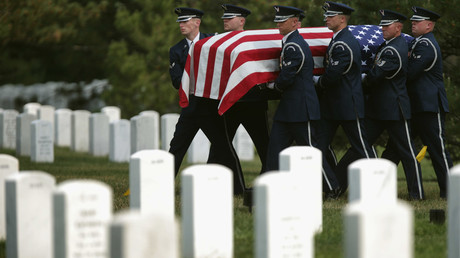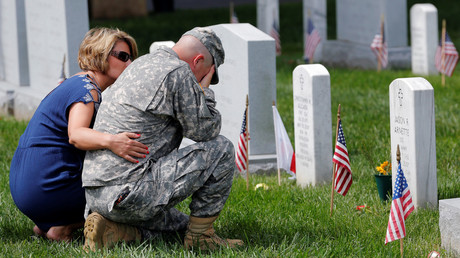‘Post 9/11 US veterans don’t have the illusion of righteousness about the wars they fought’
This generation of US veterans is facing the invalidity of the wars they fought, having been treated like puppets of the government in the execution of the unjust military action, Iraq war combat veteran Adam Kokesh told RT.
A new study has found that American soldiers who were part of the ‘War on Terror’ are struggling to make ends meet. They are facing greater hardship than veterans of previous generations.
“Post 9/11 veterans have become the first and only generation of veterans to struggle with housing affordability compared to civilians of like ages and demographics,” according to the study.
There are a number of things veterans have to deal with, according to Adam Kokesh. In his opinion, this generation of veterans is “dealing with a particularly unique combination of mental health issues that come out of the unique nature of the occupations of Iraq and Afghanistan.”
There is also “a cascade of related challenges,” Kokesh explained. There is a general perception among the population “when you have over 20 suicides a day, that veterans don’t make particularly good employees.” He thinks this is also one of the fundamental challenges that veterans face coming home today.
Apart from post-traumatic stress disorder (PTSD), combat, and the way the Department of Veterans Affairs in the US handles issues, “the big part of what my generation of veterans is facing in the US today is in regards to the invalidity of the wars themselves and being treated like puppets of the government in the execution of the unjust military action,” Kokesh said.
He argued that in previous wars “the lies were a lot better and there was more effect because the lies were harder to see through; so, veterans could come home and wrap themselves in the illusion of the justice and righteousness of the war that they fought.”
However, that is not possible anymore, Kokesh believes, “not in the age of the internet, not with these wars, not with any kind of sense of integrity.”
“A lot of veterans coming home are starting to understand that these wars were fundamentally illegitimate, that the sacrifices that we’ve made were not made just in vain, but not even in a righteous cause, but for the perpetuation of the current system of governance of states we live under throughout the world where people in charge get to treat people who aren’t [in charge] like property,” he claimed.
Kokesh suggested that the perception of the wars in Iraq and Afghanistan has changed over time in the US, as the people “can admit now that we were lied to… and taken advantage of as a people… being convinced to support these invasions and occupations.”
In his view, most Americans “don’t really consider that we are still at war… but most at this point can recognize that these are things we want to see come to an end.”
“The government knows that it can only get away with so much these days without losing more credibility before the people realize that turning to elections is a waste of time, that you can’t hold a fundamentally corrupt system accountable for its corruption because it doesn’t have the mechanisms to hold people accountable.”
“No matter how unpopular a particular policy is, the government can get away with it and individuals profiteering of a government policy can profit of corrupting government away from the will of the people…” Kokesh concluded.
Think your friends would be interested? Share this story!







Comments are closed.